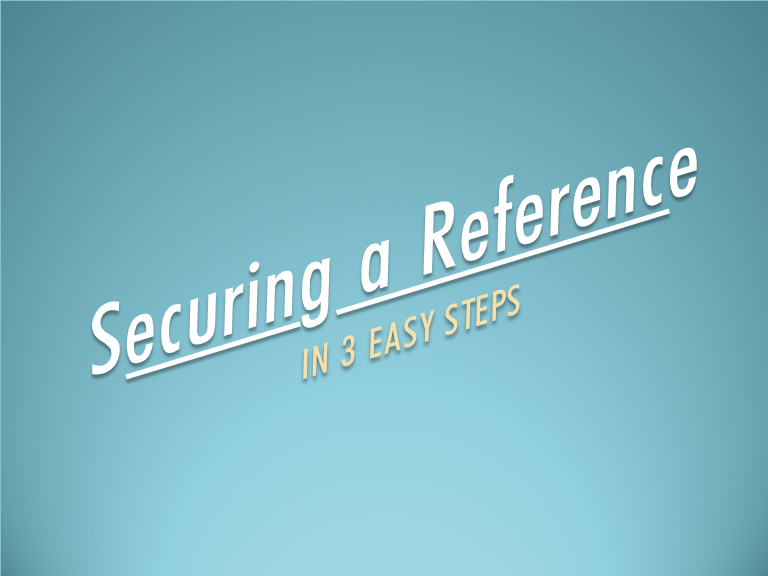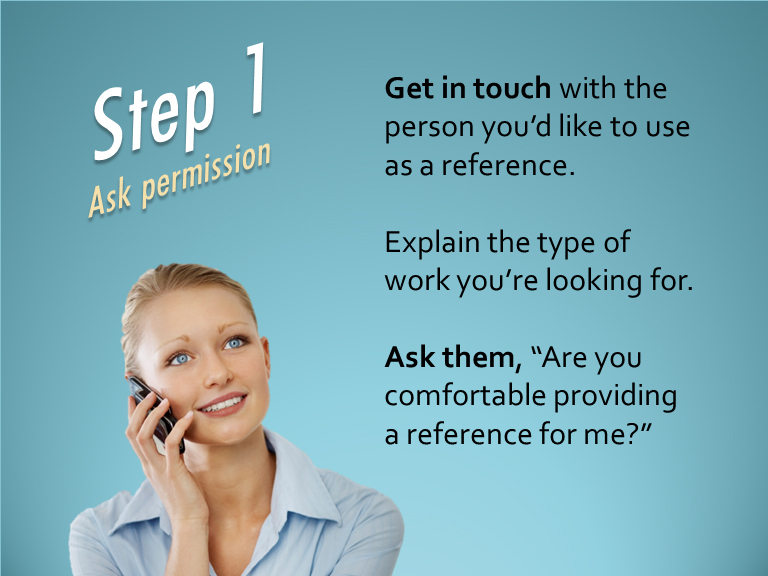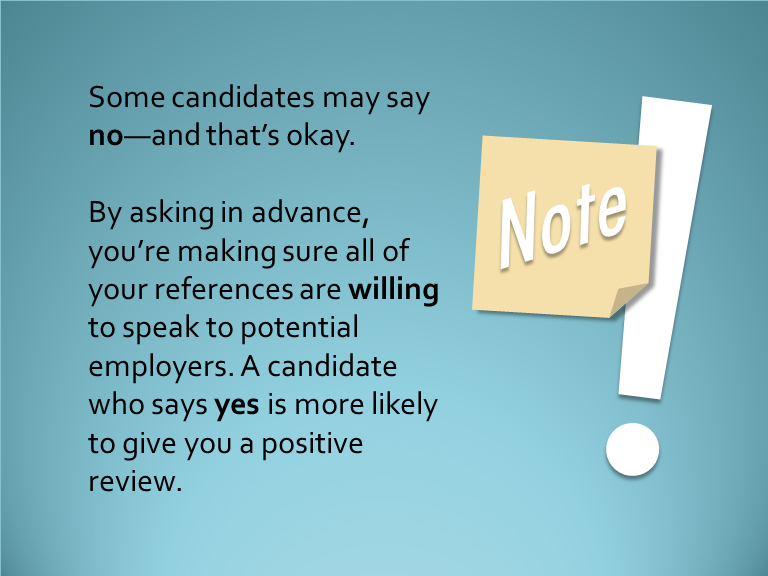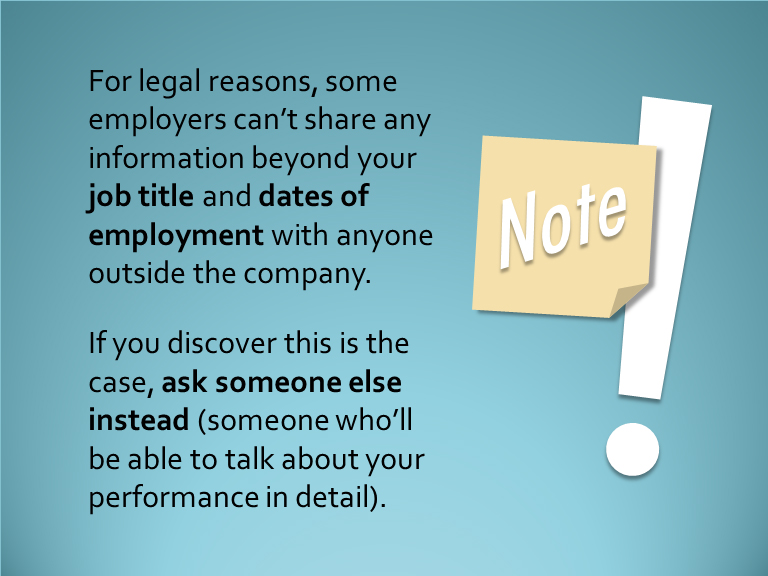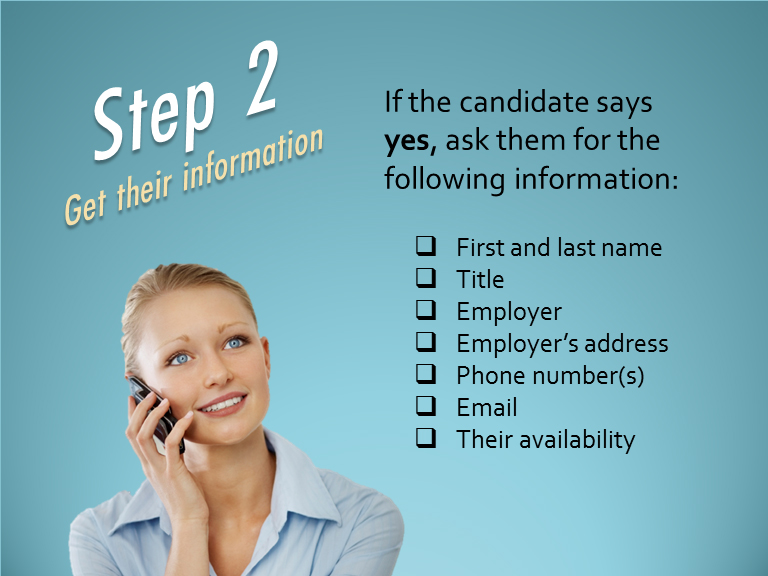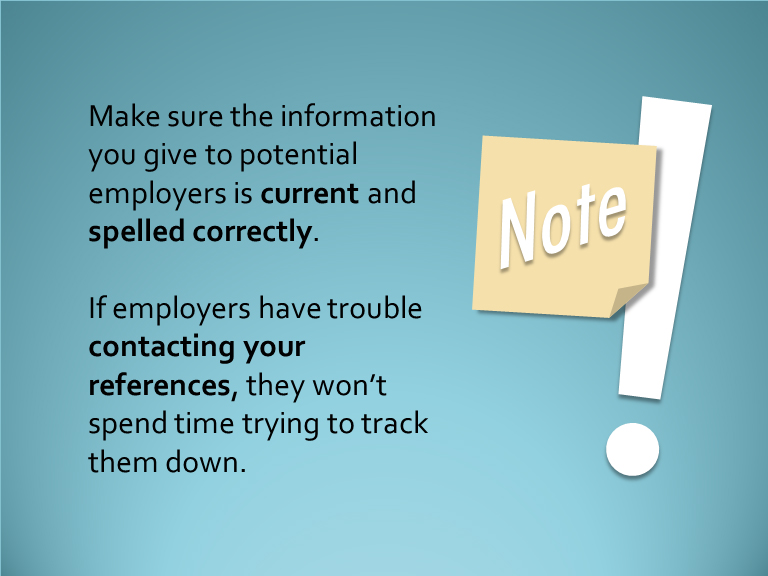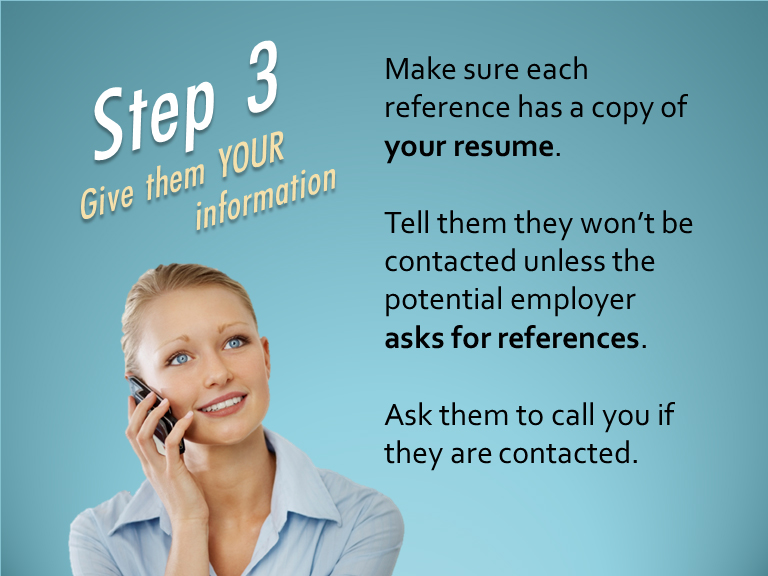
Job Applications
Obtaining References
Introduction

If an employer is thinking about hiring you, a hiring manager might ask you to provide a list of references. A reference is a person who is willing to talk to potential employers about your job skills, abilities, background, and general character—hopefully in a positive light. Potential employers usually contact references by phone or email.
In this lesson, you'll learn how to choose a reference and what contact information you'll need to get from each of them. In addition, we'll show you how to write and format a list of references to give to potential employers.
How to choose a reference
When it comes to references, choosing the right person is often just as important as the reference itself. The best candidates are people who are familiar with your talents, skills, and performance in the workplace. Alternatively, you can choose someone who isn't familiar with your work but who can speak to other important qualities you may have, such as honesty, dependability, creativity, or strength of character.
Candidates to avoid generally include close friends and family members because they're less likely to be objective. Employers expect them to give you a positive review no matter what, so they have a more difficult time taking them seriously.
Ideal reference candidates

- Current or former boss, manager, or supervisor
- Current or former coworkers
- Teachers or professors
- Fellow volunteer or program coordinator
- Other authority figures
Ideal references should also be well-spoken so they can talk about your best qualities in detail. When a potential employer asks, "What can you tell me about so-and-so?" this person wants to hear more than "She's very nice".
Candidates to avoid

- Spouse or significant other
- Family members
- Close friends
- Anyone who might seem personally biased to a potential employer
Networking and keeping in touch
You should keep the need for references in mind throughout your career, not just when you're applying for a new job. If you take the time to build relationships and consistently use networking strategies, you'll have plenty of candidates to choose from. To learn more about networking, visit Networking Baiscs in our Job Search tutorial.
It also helps to keep in touch with old bosses, supervisors, and coworkers. If they leave the company where you met, it can be difficult to track them down. Those who still work for the company may be able to give you their information, but you'll probably have better luck searching for them online. Try reconnecting on social networking sites like LinkedIn, Facebook, and Twitter.
How to ask for a reference
Always ask potential candidates if they'll provide a reference for you. If you've chosen correctly, they should be happy to talk to potential employers about you and your skills. Better yet, when contacted, they'll be fully prepared because you've spoken to them ahead of time and have made the proper arrangements.
Click the arrows in the slideshow below to find out how to secure a reference.
Providing references to employers
Because your list contains your references' personal information, it's common practice NOT to give your references to potential employers unless you are asked. Employers may ask for your references during or after an interview, or when you are completing an application.
References available upon request is a phrase that's commonly used at the bottom of a resume. Because hiring managers expect that you have references, you can omit this phrase if you wish.
Creating a list
Once you've secured at least three references (or up to six for higher-level jobs), prepare a list of names and contact information you can give to potential employers. For help, review the tips below.
- Use a word processing program such as Microsoft Word or Google Docs. Presenting your references in a neatly typed list will make a much better impression than writing them by hand.
- Use a conservative font. For a consistent, professional look, use the same font that's on your resume. Don't use clip art, pictures, or other decoration. Unless you're applying for a job in a creative field, it's considered unprofessional.
- Include your personal information, including your name, address, phone number, and email address. This way, a hiring manager will know the references belong to you if they become separated from your job application or resume.
- List your references in order. In other words, list them in the order you want potential employers to contact them. If you have no preference, list them alphabetically.
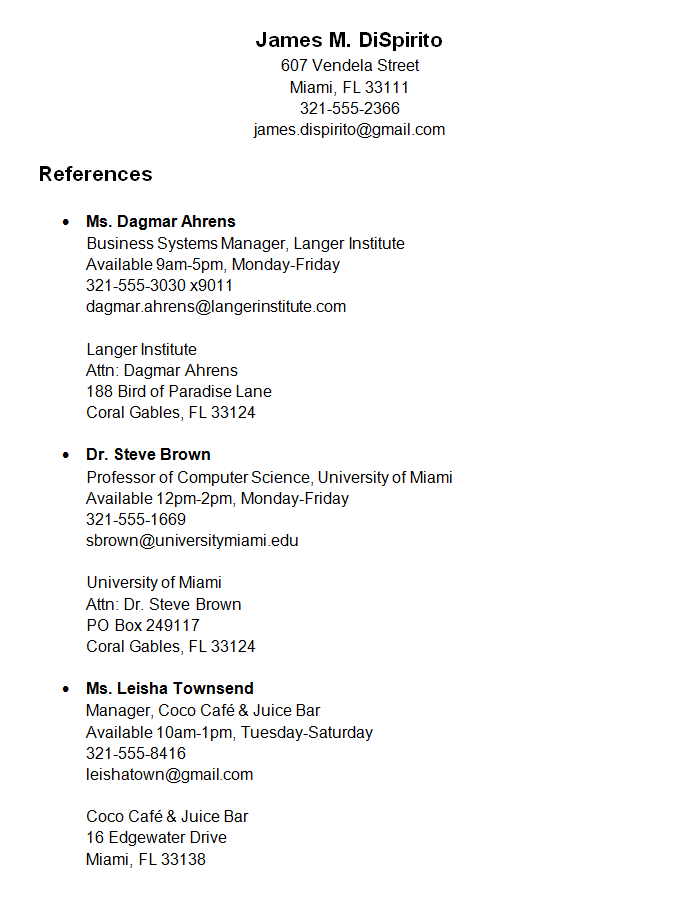
Resources
To learn more about securing and providing professional references, check out the resources below.
- 10 Steps to Preparing Top-Notch References (Careerealism)
- What are Employers Asking Your References? (CareerBuilder)
- Avoid These Reference Mistakes (The Write Solution)
